FROM CRUSADE TO HAZARD
The Denazification of Bremen Germany
Bianka J. Adams

Published by Scarecrow Press, Inc.
A wholly owned subsidiary of The Rowman & Littlefield Publishing Group, Inc.
4501 Forbes Boulevard, Suite 200, Lanham, Maryland 20706
http://www.scarecrowpress.com
Estover Road, Plymouth PL6 7PY, United Kingdom
Copyright 2009 by Bianka J. Adams
All rights reserved. No part of this book may be reproduced in any form or by any electronic or mechanical means, including information storage and retrieval systems, without written permission from the publisher, except by a reviewer who may quote passages in a review.
British Library Cataloguing in Publication Information Available
Library of Congress Cataloging-in-Publication Data
Adams, Bianka J. (Bianka Janssen)
From crusade to hazard : the denazification of Bremen, Germany / Bianka J. Adams.
p. cm.
Includes bibliographical references and index.
ISBN 978-0-8108-5992-0 (pbk. : alk. paper) ISBN 978-0-8108-7027-7 (ebook)
1. Bremen (Germany)History20th century. 2. DenazificationGermanyBremen. 3. Military governmentGermanyBremen. 4. Bremen (Germany)Politics and government20th century. 5. AmericansGermanyBremenHistory20th century. 6. BritishGermanyBremenHistory20th century. 7. GermanyHistory19451955. I. Title. DD901.B78A335 2010
943.520874dc22
2009021946
 The paper used in this publication meets the minimum requirements of American National Standard for Information SciencesPermanence of Paper for Printed Library Materials, ANSI/NISO Z39.48-1992. Printed in the United States of America
The paper used in this publication meets the minimum requirements of American National Standard for Information SciencesPermanence of Paper for Printed Library Materials, ANSI/NISO Z39.48-1992. Printed in the United States of America
Wir wissen, da die deutsche Katastrophe eine selbstverschuldete Katastrophe ist und da die Quellen allen bels bei uns selbst gesucht werden mssen. Es liegt in der Konsequenz dieser Dinge, da wir noch viel hinnehmen mssen, was unser nationales Ehrgefhl verletzt.
Wilhelm Kaisen in a speech at the opening ceremony for the first elected city council, October 1946 (Wilhelm Kaisen, Bereitschaft und Zuversicht [Bremen, Germany: Bremer Schlssel Verlag Hans Kasten, 1947], 62). [We know that we Germans are to be held guilty for the German catastrophe and that we have to look for the root of all evil in ourselves. From this follows that we will have yet to bear a lot that will injure our national sense of honor.] Translation provided by Adams.
Contents

Acknowledgments

I WOULD LIKE TO THANK THOSE WHO GUIDED and supported me along the way. First and foremost, my gratitude belongs to Dr. Michael O. Wheeler and Robert Gregg of the Advanced Systems and Concepts Office, Defense Threat Reduction Agency, whose backing and understanding made it possible for me to write this book. My deepest appreciation also goes out to DTRA senior historian Dr. Joseph P. Harahan, whose encouragement and continued interest in my progress kept me on the right track. I am also profoundly thankful to Dr. Joan Andorfer for her helpful comments and meticulous attention to detail and to Dr. Robert S. Rush for his ever-probing questions and constructive criticism.
During my research, I was fortunate to be supported by archivists Becky Collier and William Mahoney of the Modern Military Records unit, National Archives and Record Administration, College Park, Maryland. I am likewise indebted to the staff at the State Archives of the city of Bremen and Dr. Andreas Rpke in particular. Furthermore, I am thankful to Mark J. Reardon for his support and guidance in the beginning of the writing process.
I would also like to thank Dr. Martin K. Gordon, series editor at Scarecrow Press, who showed interest in my project. I also appreciate the efforts of my production editor, Kellie Hagan.
Finally, my heartfelt thanks go to my husband, Clark, for his unwavering support and the sacrifices he willingly made.
Introduction

ON CHRISTMAS 1943, U.S. president Franklin D. Roosevelt proclaimed that the ultimate goal of the war was to uproot and destroy Nazism. Roosevelts pronouncement was one of the common war aims of the diversified wartime alliance of the United States, United Kingdom, and Soviet Union. Another was to occupy Germany in order to administer a program of decentralization, denazification, demilitarization, and democratization and thus prevent the country from ever threatening the peace again. For that purpose, the German territory would be divided into national occupation zones, one for each of the victorious Allies. Agreement on the location of the Soviet Zone was easily reached. It would naturally be east, in the path of the Red Army. The distribution of the western zones, however, turned into a protracted and, at times, contentious tug of war between the American president and the British prime minister, Winston S. Churchill. Both parties preferred the northwestern zone because of its ports and secure supply lines. Only in the fall of 1944, with British and American troops already advancing onto Germany territory, did Roosevelt yield and agree to accept the southwestern zone if the American forces were guaranteed access to a port on the German coast. Churchill willingly ceded the territory in and around the cities of Bremen and Bremerhaven as an American enclave in the British Zone.
For American and British Military Government planners, the administration of the U.S. enclave of Bremen was an afterthought. They concentrated on larger issues of politics, finance, the economy, and, most importantly, how to deal with the National Socialists. The Americans believed that most Germans were victims of a criminal cast and that the evil Nazi element could be uprooted if only they dug deep enough. The resulting directive therefore ordered that all members of the Nazi Party who had been more than nominal participants had to be removed and excluded from public office and positions of importance in quasi-public and private enterprises. The British did not share the Americans assumption about the German people, however, and accepted that they might only be able to correct the most egregious flaws by removing Nazis from public office. The stage for diverging denazification policies and practices in the American and the British zones was set.
For the military government officers who were in many cases veterans of the Allied Military Government in Sicily and the Italian mainland, Germany proved to be the most difficult assignment. The degree of destruction was greater than in previous theaters, and the country was left without a functioning authority. British and American officers soon discovered that the denazification posed a serious impediment to their efforts to rebuild administrative agencies. The Nazis had penetrated German society so thoroughly that it was sometimes impossible to find politically untainted personnel to replace dismissed Nazis. Nevertheless, the Americans held to their ambitious goal of purifying German society in their zone. The British remained committed to their more pragmatic and much less stringent approach.


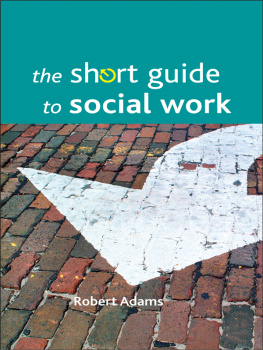



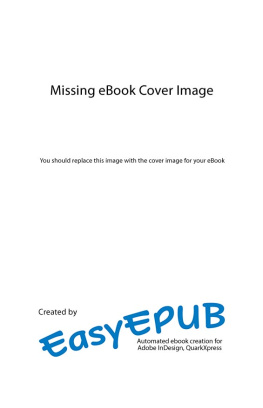


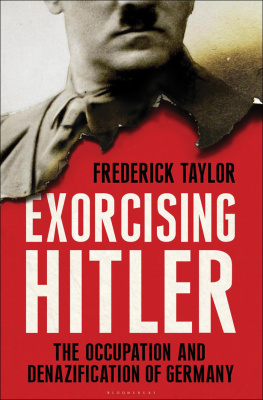


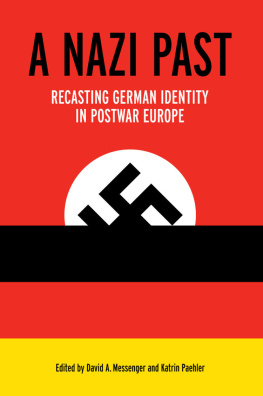

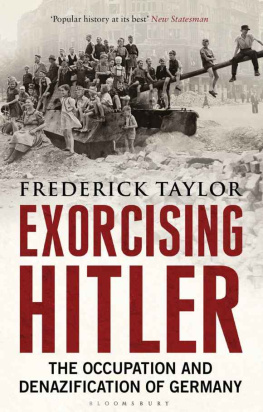

 The paper used in this publication meets the minimum requirements of American National Standard for Information SciencesPermanence of Paper for Printed Library Materials, ANSI/NISO Z39.48-1992. Printed in the United States of America
The paper used in this publication meets the minimum requirements of American National Standard for Information SciencesPermanence of Paper for Printed Library Materials, ANSI/NISO Z39.48-1992. Printed in the United States of America